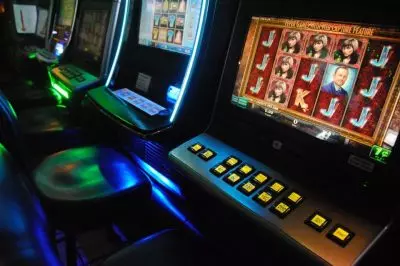 Plainfield authorities failed to reach an agreement on whether or not to authorize video gaming terminals at local businesses during a recent meeting of the Plainfield Village Board. Board members pondered over an ordinance draft regarding the terminals’ installation but no voting on the matter took place. This is hardly the first time the governing body of the Illinois town discusses this subject.
Plainfield authorities failed to reach an agreement on whether or not to authorize video gaming terminals at local businesses during a recent meeting of the Plainfield Village Board. Board members pondered over an ordinance draft regarding the terminals’ installation but no voting on the matter took place. This is hardly the first time the governing body of the Illinois town discusses this subject.
The ordinance would enable non-gambling businesses in the village to seek licenses for the installation of said gaming machines provided they meet certain conditions. Prospective licensees should have been in operation for at least a year and a half. Additionally, the businesses should be based outside residential districts and must hold valid licenses for the sale of alcoholic beverages.
Gas stations and truck stops cannot apply for such permits under the proposal. Illinois gambling legislation creates additional hurdles since it prohibits businesses from operating any gaming terminals within one hundred feet of churches and education facilities. Some board members took issue with this particular restriction, arguing it would exclude several bars and restaurants in downtown Plainfield due to their proximity to the local United Methodist Church.
Regulatory Hurdles Stand in the Way of Some Plainfield Businesses
 The drafted ordinance featured a map of the downtown establishments to show whether they meet the distance condition. As it turned out, five downtown businesses did not. They were all located within less than a hundred feet of the above-mentioned place of worship, which rendered them ineligible for video gaming permits.
The drafted ordinance featured a map of the downtown establishments to show whether they meet the distance condition. As it turned out, five downtown businesses did not. They were all located within less than a hundred feet of the above-mentioned place of worship, which rendered them ineligible for video gaming permits.
This caused some board members like Brian Wojowski to speak against the installation of the terminals. Trustee Wojowski argued that some establishments would miss out on the benefits as a result of the one-hundred-feet rule. Mr. Wojowski subsequently proposed a cut in the license fees for the ineligible businesses.
He also spoke against the business model implemented for the video gaming terminals, which allows the companies supplying the machines to receive a share of the associated revenue. Mr. Wojowski acknowledged this practice was standard but this did not prevent him from disagreeing with it.
Plainfield Mayor John Argoudelis referred to the distance rule as “anachronistic” and proposed lobbying for its change on a state level. Mr. Argoudelis also suggested that village authorities should first ask the owners of the ineligible establishments whether they want to operate such machines in the first place.
Neighboring Townships with Video Gaming Saw a Surge in Revenue
 The Plainfield Village Board, which consists of a president and six trustees, has debated the topic on multiple occasions in the past. The trustees are split in their opinions, which makes arriving at a decision all the more difficult. Some board members like Harry Benton have openly embraced the idea, arguing that licensed gaming terminals could help generate additional revenue for Plainfield.
The Plainfield Village Board, which consists of a president and six trustees, has debated the topic on multiple occasions in the past. The trustees are split in their opinions, which makes arriving at a decision all the more difficult. Some board members like Harry Benton have openly embraced the idea, arguing that licensed gaming terminals could help generate additional revenue for Plainfield.
Trustee Benton is confident local restaurants and bars would be the main benefactors of the move. The terminals could give them a much-needed revenue injection as these businesses took a severe hit during the coronavirus pandemic and the lockdowns it brought about.
Plainfield authorities collected tax revenue information from neighboring villages like New Lenox, Romeoville, and Lockport, all of which have already authorized video gaming at such establishments. Each of these townships is home to approximately twenty businesses that operate video gaming terminals.
The machines collectively generated more than $300,000 in extra revenue for the neighboring communities between February 2019 and February 2020. The number of licensed establishments continued to rise and so did tax revenue. The New Lenox and Romeoville townships subsequently collected around half a million in annual revenue between February 2021 and February of this year.
Additionally, the Plainfield report suggested licensed video gaming in the neighboring townships had not led to a significant increase in crimes. The reports of local police departments indicated their impact was negligible.